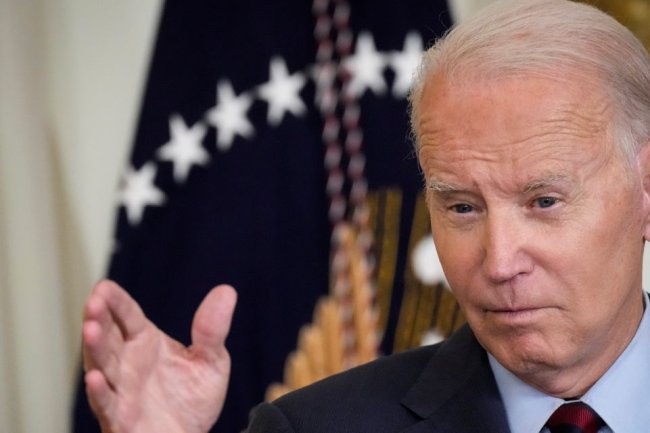The Proxy Advisory Duopoly Gets New Scrutiny
House Republicans probe business conflicts of interest and antitrust issues at ISS and Glass Lewis. By The Editorial Board Aug. 1, 2023 4:12 pm ET House Judiciary Committee Chair Jim Jordan, R-Ohio, in Washington on Monday. Photo: J. Scott Applewhite/Associated Press Progressives see antitrust violations even when none exist, yet they turn a blind eye to the close relationship between proxy advisory firms and asset managers on environmental, social and governance (ESG). House Republicans are starting to expose this arrangement. The House Judiciary Committee on Tuesday sent letters to the proxy advisory duopoly, Glass Lewis and Insti


House Judiciary Committee Chair Jim Jordan, R-Ohio, in Washington on Monday.
Photo: J. Scott Applewhite/Associated Press
Progressives see antitrust violations even when none exist, yet they turn a blind eye to the close relationship between proxy advisory firms and asset managers on environmental, social and governance (ESG). House Republicans are starting to expose this arrangement.
The House Judiciary Committee on Tuesday sent letters to the proxy advisory duopoly, Glass Lewis and Institutional Shareholder Services (ISS), asking for documents related to agreements they may have with other proxy firms, asset managers, stockholder engagement service providers, and climate alliances or initiatives. The proxy firms appear “to have colluded with institutional investors to force American corporations to ‘decarbonize’ their assets and reduce their emissions to net zero,” the letter notes.
Glass Lewis and ISS provide proxy-vote recommendations to asset managers, including public pension funds and university endowments. The two firms account for 91% of the proxy adviser market, and they purvey other services that entrench their power. ISS peddles consulting services to corporations on how to win proxy votes and compiles ESG ratings. Glass Lewis helps activist investors run proxy campaigns. Neither publicly discloses its clients, which might reveal substantial business conflicts.
The Judiciary letter says the potential antitrust problems go deeper. Both firms recommend that investors vote against directors at companies targeted by the investor alliance “Climate Action 100+” unless they detail the impact of a low-carbon future on their operations (Glass Lewis) or align their operations with a net-zero trajectory by 2050 (ISS).
Climate Action 100+ includes some 700 global asset managers and owners, including BlackRock, the Illinois State Treasurer’s Office and Harvard University endowment. It says its goal is to “ensure the world’s largest corporate greenhouse gas emitters take necessary action on climate change.” Is this a collusive agreement?
The Judiciary Committee letter notes that “collusive agreements harm competition and consumers and are illegal under the Sherman Act.” The Supreme Court has rejected “social justifications” for such restraints of trade. If proxy firms and major investors tried to compel oil and gas companies to boost production, antitrust cops wouldn’t blink before bringing charges.
The Judiciary Committee also sent letters to ESG activist investors—including Engine No. 1, Arjuna Capital, Trillium Asset Management and Aviva Investors Americas—soliciting information about their participation in climate initiatives. Do they work with the duopoly?
Last month the House Financial Services Committee passed a bill sponsored by Wisconsin Rep. Bryan Steil that would require the proxy advisers to register with the Securities and Exchange Commission, provide advice solely in the best economic interest of shareholders, and to disclose the methodologies behind their voting recommendations.
Firms would be liable for misstatements and failing to disclose material information about their operations, as public companies are liable under securities laws. Proxy advisers would also be prohibited from offering services that create business conflicts that can’t be mitigated—such as ISS’s corporate consulting shop.
When former SEC Chair Jay Clayton tried to implement similar rules, proxy firms and their progressive friends complained about excessive regulation. But auditors, broker-dealers, stock exchanges and investment advisers are tightly regulated to prevent business conflicts. The proxy advisers currently get a pass even though they carry more clout. Congress can put an end to that duopoly power.
Hunter Biden's former business partner, Devon Archer, has testified behind closed doors to the House Oversight Committee about the President's ties to his son's foreign business dealings, which included more than 20 calls on speaker phone with business associates. Images: Reuters/Associated Press Composite: Mark Kelly The Wall Street Journal Interactive Edition
What's Your Reaction?

















